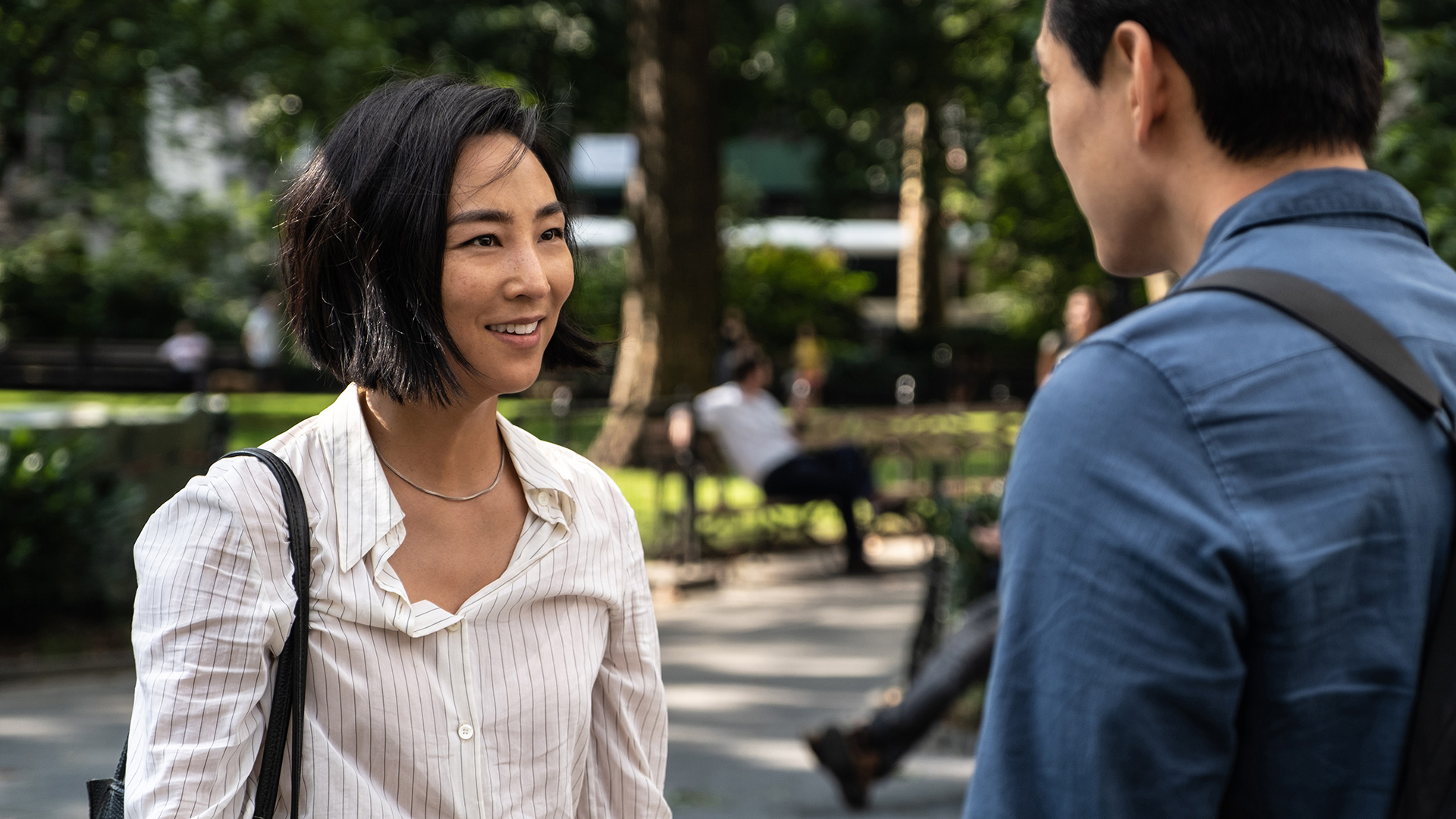Quietly extraordinary, Past Lives is deeply romantic about the big what-ifs

Two childhood friends, now living continents away, reconnect in Past Lives. Director Celine Song brings a tender, elegant economy to her storytelling that doesn’t quite prepare you for how much it’ll wipe you out at the closing stretch, writes Aaron Yap.
As a young immigrant who moved from Malaysia to New Zealand at the age of ten, I never felt too far away from my roots. Every once or two years, we would fly back to visit our grandparents, usually over the long summer school holidays—just enough time to firmly plant our feet on the ground and still live, as we once did, in an environment where we had uprooted from.
My parents’ rationale for this routine was simple: it allowed us to remain connected, continue practicing our native language with our grandparents, who spoke little English. Despite quickly acclimatising to a Western society, this was one thing we would never let go of, and continued doing until they had all passed.
The goodbyes always hurt. The crushing weight of seismic life choices and sacrifices we’ve made stacked up against everything else we had to leave behind: the people, the places, the past. And doing it all over again. Each year.
Celine Song’s quietly extraordinary debut feature Past Lives understands this aspect of the Asian immigrant experience more specifically—or maybe specifically to me—than any other film on the subject that I’ve ever seen. It’s about two distinct worlds that can never completely be one. You’ve lived two lives. You exist in two places in time. But where you are now is home. As the film’s New York-based Korean immigrant Nora (Greta Lee) muses, after reconnecting with her childhood friend from Seoul, Hae Sung (Teo Yoo): “This is where I ended up, this is where I’m supposed to be.”
Of the recent diasporic films like The Farewell, Minari and Return to Seoul—all wonderful, moving, genuinely insightful in the way they negotiate, and offer a range of rich perspectives on Asian family dynamics, cultural identity and barriers—Past Lives is probably the most gently cosmic and sublime.
Song’s screenplay, inspired by her own life, touches on the Korean concept of in-yun: if two souls are destined to meet, it’s the result of the countless many interactions they’ve had in previous lifetimes. This philosophical heft makes the tale feel expansive in its passage of time and traversing of continents, yet thoroughly delicate and intimate in how much of it orbits around brief windows of connection and conversation.

Bridging past and present, East and West, romance and friendship, the film unfolds in a liminal zone. It’s deeply romantic about those big what-ifs. Lee and Yoo’s on-screen chemistry together is unmistakable, the burning sense of longing palpable. We’re never not invested in their attempts to process the slippery, undefinable contours of their relationship. But Song builds the narrative so unconventionally—without conflict nor blame, just the generosity of understanding, and the enlightened acceptance of circumstance—so as to nearly render Past Lives an anti-climactic romance, with a foretold outcome that cannot play out any other way.
It’s quite the remarkable first film for Song, who brings a tender, elegant economy to her storytelling that doesn’t quite prepare you for how much it’ll wipe you out at the closing stretch. This one aches really good, folks. I can’t shake it.



















